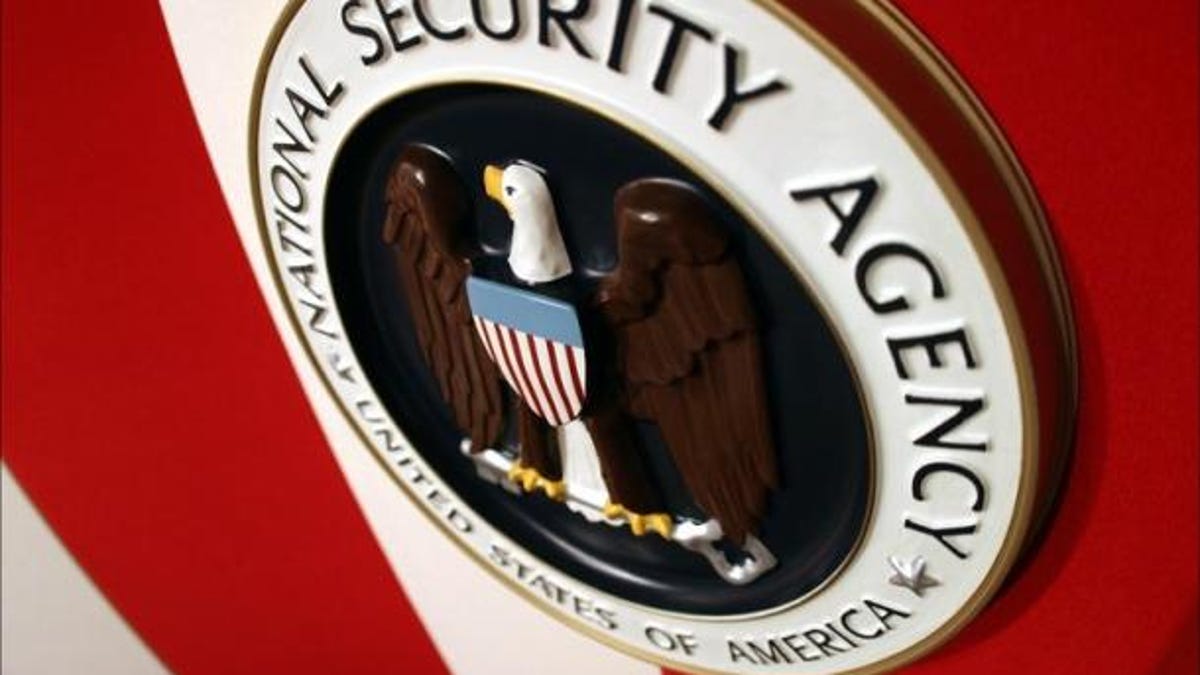NSA admits to some deliberate privacy violations
Despite characterizations of domestic data-gathering as accidental, the agency says some of its analysts engaged in "willful violations" of legal restrictions.

The bubbling pot of confusion and concern over possible NSA spying on Americans -- and possible double-talk by US officials -- just got a little more stirred up.
Despite earlier statements that have characterized domestic data-gathering by the National Security Agency as unintentional, the agency said Thursday night that there have, in fact, been instances of NSA analysts engaging in "willful violations" of legal restrictions.
"Over the past decade, very rare instances of willful violations of NSA's authorities have been found, but none under FISA or the Patriot Act," the agency said in a statement provided to various media outlets.
The statement accompanies a classified report provided to congressional intelligence committees by the NSA's inspector general and detailed to Bloomberg by "an official familiar with the findings."
It also follows the release on Wednesday of a 2011 ruling by the Foreign Intelligence Surveillance Court that decried the government's "substantial misrepresentation" of the scope of NSA activities.
The inspector general's report, according to the unnamed official, said that there was documentation of, on average, one case per year over 10 years of NSA analysts intentionally overstepping their bounds. The report also said that the infractions were minor and violated the 1981 Executive Order 12333, which governs U.S. intelligence operations. A second official told Bloomberg that the violations were committed by overzealous analysts looking to prevent a repeat of the September 11, 2001, terrorist attacks.
Regardless, the revelation could fuel perceptions that NSA and other government officials are being cagey -- if not dishonest -- about what's actually going on with the agency's surveillance of phone calls and Internet communications.
In a statement provided to CNET, Nate Cardozo, a staff attorney with the Electronic Frontier Foundation, said officials haven't been upfront about the situation:
"On August 9, the president stated categorically that the NSA's authorities are 'not being abused,'" Cardozo said. "On August, 15, we learned that in fact the NSA broke its own privacy rules thousands of times a year. On August 16, the Chair of the Senate Select Committee on Intelligence qualified the president's earlier claim and stated that the NSA had never 'intentionally' abused its authority. Today's report indicates that neither the president nor Senator Feinstein has been forthright with the American public. Not only is the NSA abusing its authority, but some of that abuse is intentional."
Bloomberg notes other instances when officials said in no uncertain terms that no intentional privacy violations had taken place:
Army General and NSA Director Keith Alexander said during an August 8 conference in New York that "no one has willfully or knowingly disobeyed the law or tried to invade your civil liberties or privacy." And House Intelligence Committee chairman Rep. Mike Rogers said on CBS' "Face the Nation" TV show on July 28 that the NSA's sweeping up of Americans' phone records had seen "zero privacy violations."
The news agency continues by noting that Feinstein's staff said that during the August 16 remarks (cited by the EFF's Cardozo), she was talking specifically about violations of the Foreign Intelligence Surveillance Act and that Rogers' staff said he meant there'd been no "willful and intentional violations of law."
The NSA capped its statement last night by saying intentional violations such as those mentioned in the classified report are unacceptable.
"NSA takes very seriously allegations of misconduct, and cooperates fully with any investigations -- responding as appropriate. NSA has zero tolerance for willful violations of the agency's authorities."

